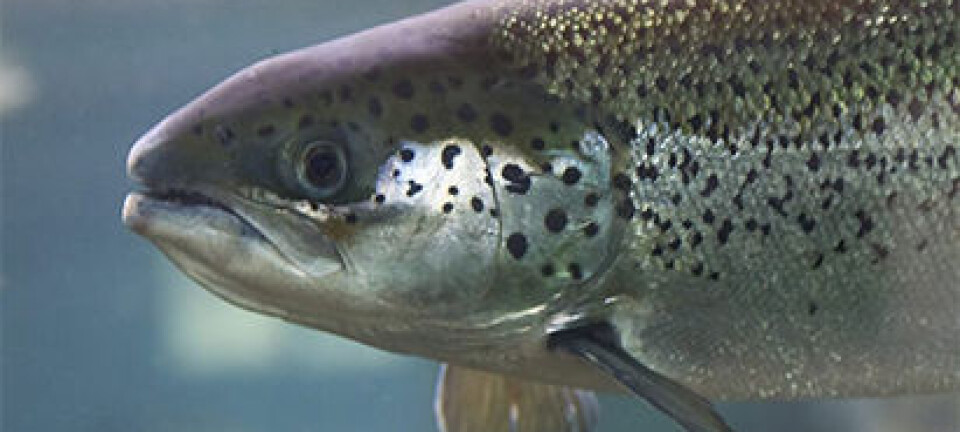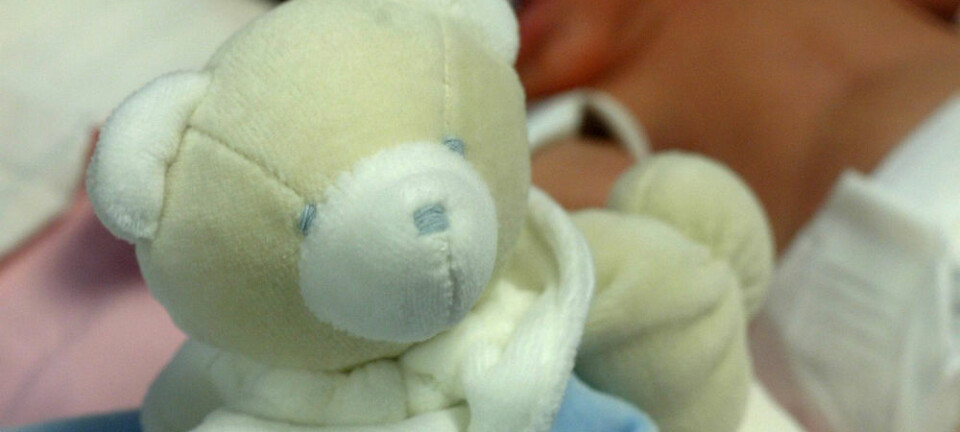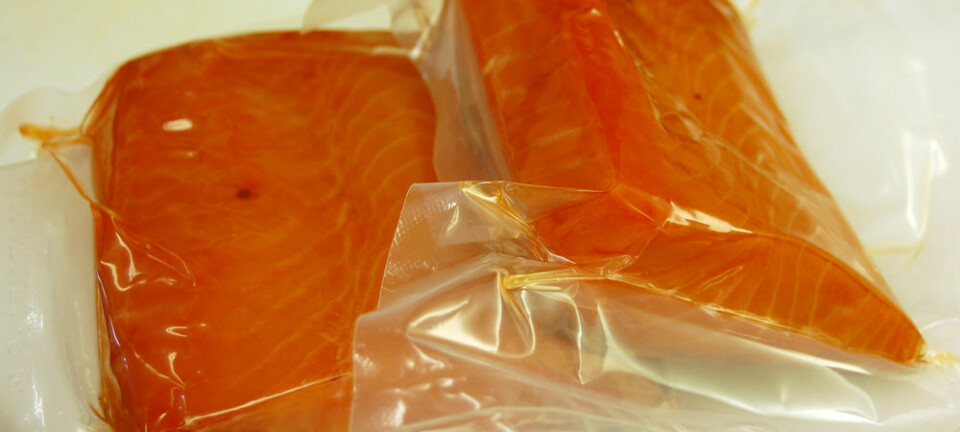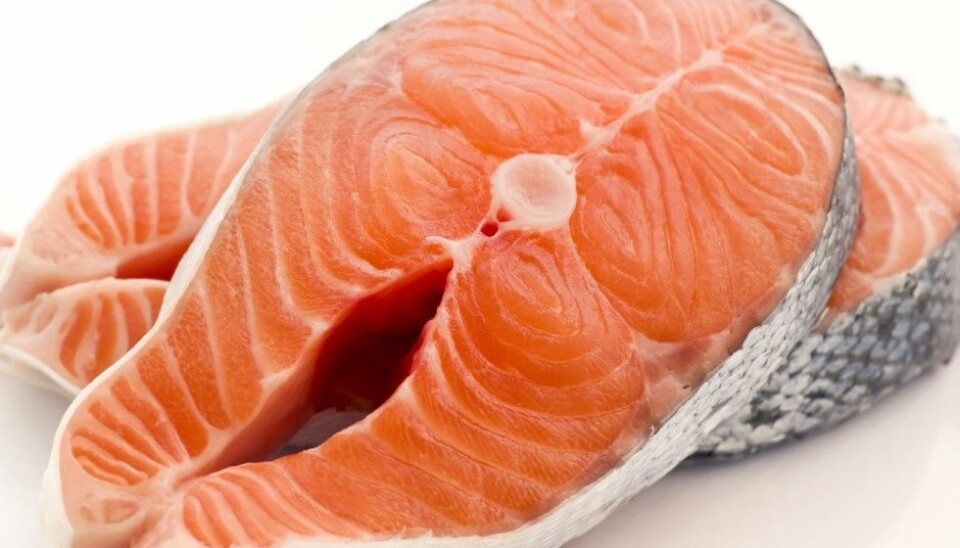
Why omega-3 lowers risk of disease
Norwegian scientists have uncovered new information about how omega-3 fatty acids actually work. Proteins that are misfolded accumulate like garbage in body cells and they can lead to diseases. Omega-3 helps cells remove such harmful proteins.
Denne artikkelen er over ti år gammel og kan inneholde utdatert informasjon.
People who eat lots of fatty fish and other seafood run lower risks of a host of ailments, including cancer and cardiovascular diseases. Scientists have said for some time that omega-3 is good for our health.
Fatty fish and cod liver oil contain polyunsaturated fatty acids, but how do these work as an agent against diseases?
Scientists at the Norwegian University of Science and Technology (NTNU)’s Centre of Molecular Inflammation Research wished to find out. Their new insights into how these fatty acids act on a cellular level have been recently published in the medical journal Autophagy.
We asked Research Fellow Ida Johansson at NTNU to tell us what they found.
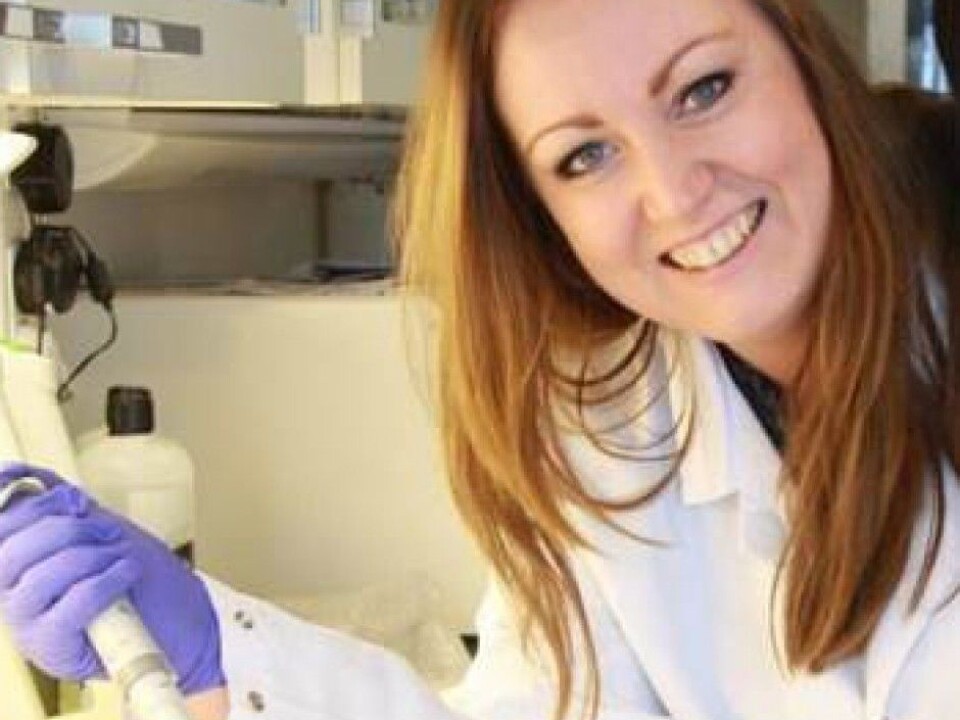
She started with an explanation of one of the things that happens in our bodies as we age.
Cellular waste management weakens
Our cells have a system for taking care of garbage. They break down their own waste and recycle the protein material much like on a larger scale we recycle plastics, paper, metal and glass. This waste is converted within the cells into new building blocks and energy.
The waste is recognised by matching proteins which gather them into clumps that are isolated from the rest of the cell. This “rubbish bag” is then moved to a kind of waste processing plant in the cell where it is broken down into smaller parts and substances.
But our body’s capability of decomposing and removing harmful substances slackens when we get older. This can damage cells and lead to various illnesses. So the risk of disease increases with age.
Accumulation of garbage proteins
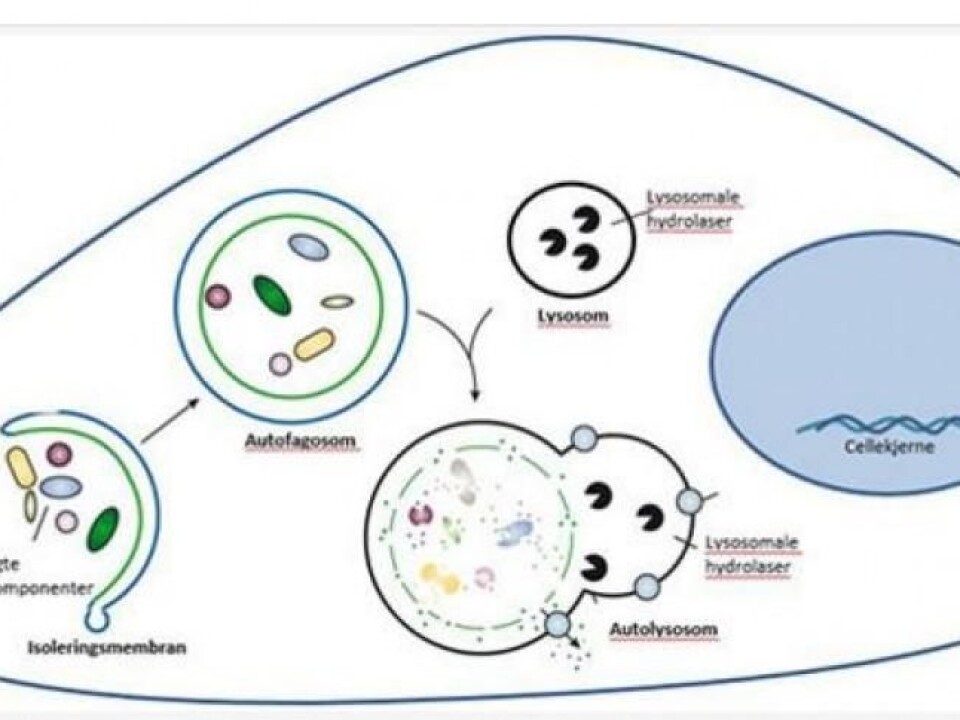
Many of the diseases occur because misfolded proteins accumulate in and around the cells of the body organs.
Examples of incurable diseases that strike the elderly are Alzheimer’s or the neuro-degenerative eye disease macular degeneration.
“Population studies have shown that people who consume lots of omega-3 fatty acids run lower risks of contracting this particular vision impairment.”
Research Fellow Ida Johansson explains that macular degeneration is linked to the accumulation of such misfolded proteins.
Young animals can get old-age diseases
Experiments using animals have shown that genes for this waste management are vital.
“When the genes that manage waste are removed in young animals they contract age-related diseases,” says Johansson.
This is one of the reasons why scientists think that well-functioning garbage management inside cells is a key element of disease prevention.
Better garbage disposal in the cells
“You can compare this to garbage management in your home. All is well as long as we sort our trash and the garbage trucks come and pick it up,” she says.
But if we were to stop placing our trash in the bin, or the renovation workers went on strike, garbage would start piling up and this would lead to mayhem, explains Johansson.
Her research team gave some cells polyunsaturated omega-3 fatty acids to see what happened.
“What we see is that these cells eventually remove garbage proteins more effectively. Fatty acids activate the cells’ abilities to remove these harmful substances,” says Johansson.
She says that omega-3 fatty acids activate the cells’ waste treatment system and function in the same way as garbage trucks that hall our trash away for recirculation.
Dangerous oxygen compounds
Another cause of disease is called oxidative stress, an imbalance of reactive oxygen species, which are what anti-oxidants are supposed to neutralise. These harmful oxygen compounds, peroxides and free radicals, are natural by-products of cellular metabolism and can be very damaging to the cells. It is important to keep levels of these compounds down.
“DNA can be damaged or various proteins can stop working properly when there are excessively high concentrations of these reactive oxygen species. They can contribute to disease,” says Johansson.
The research group also saw that cells which had been given omega-3 fatty acids were better at regulating levels of these oxygen compounds.
An extra clean-up
“Fatty acids turn on a central mechanism which make the cells do an extra clean-up,” says Johansson.
None of these mechanisms were previously known.
The entire jigsaw puzzle of how omega-3 fatty acids work in disease protection has yet to be pieced together. But the findings in Trondheim represent an important piece.
“It enables us to understand better how particular ingredients in our food can help prevent disease,” says Johansson.
Food reducing disease
Our genes and our environment both contribute to the diseases we contract and when we get them. To date, we cannot do much with our genes.
But the food we eat is significant among the environmental factors which can either raise or lower the risks of disease.
“We can alter the types of foods we eat. We hope that our discoveries will motivate more people to eat healthily, as people can see what actually happens inside their cells when they eat omega-3 fatty acids,” says Research Fellow Ida Johansson.
Do you take cod liver oil?
“Yes, indeed! I have always been concerned about a healthy diet but thanks to research I’ve become even more conscious of the food I eat than I was before,” she says.
-------------------------------------
Read the Norwegian version of this article at forskning.no
Translated by: Glenn Ostling







